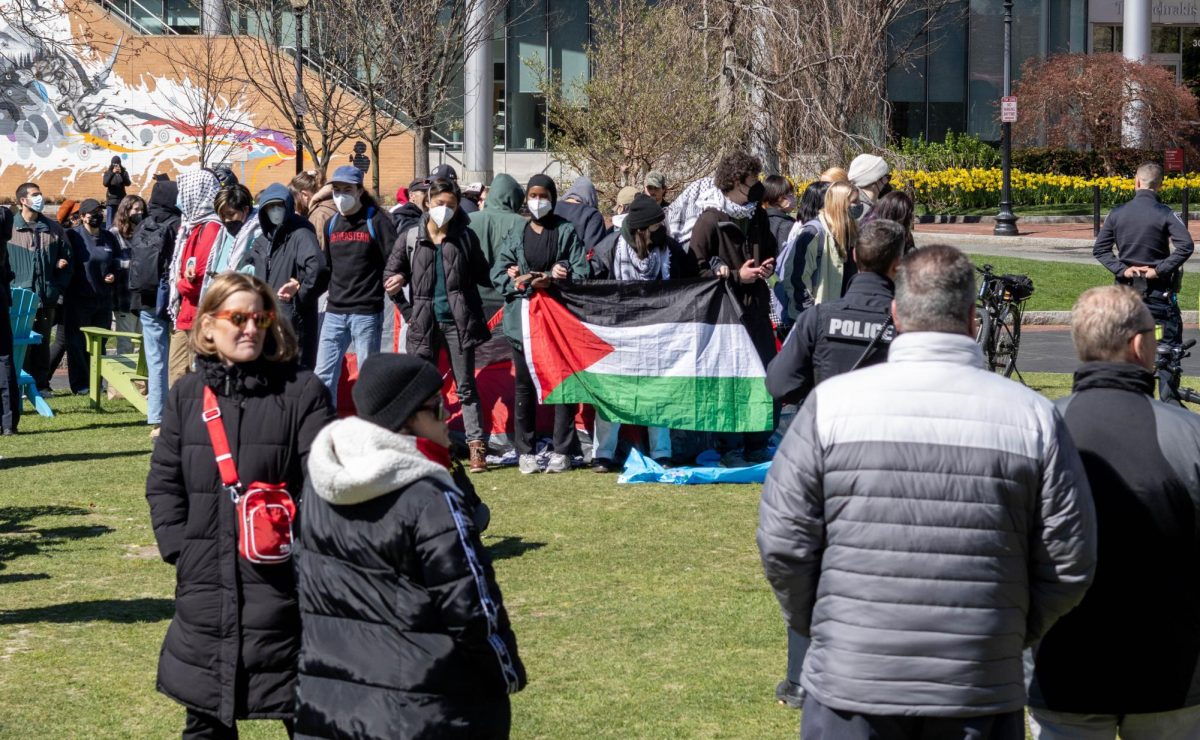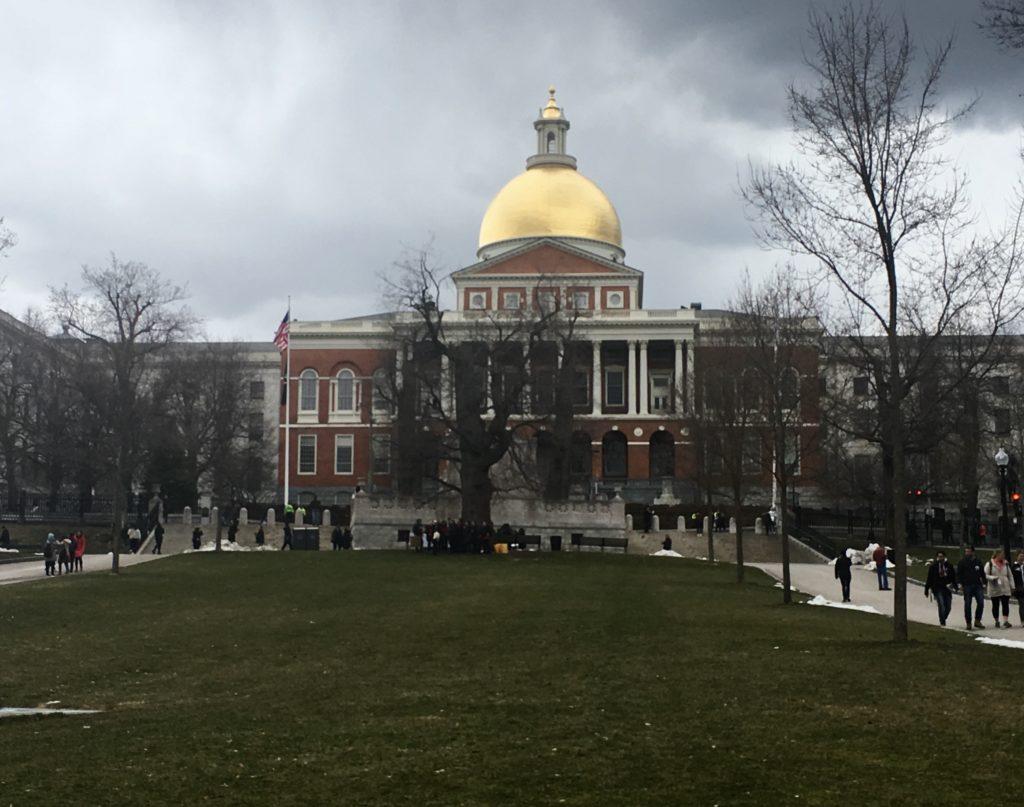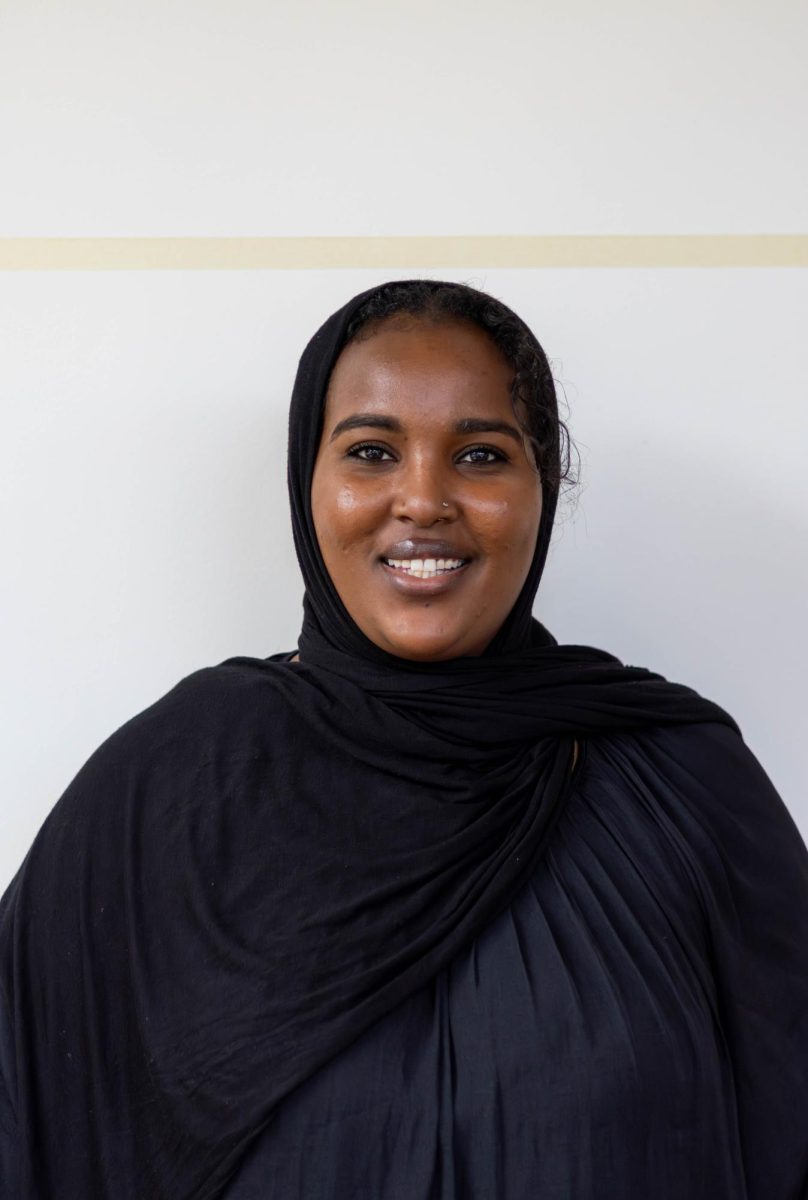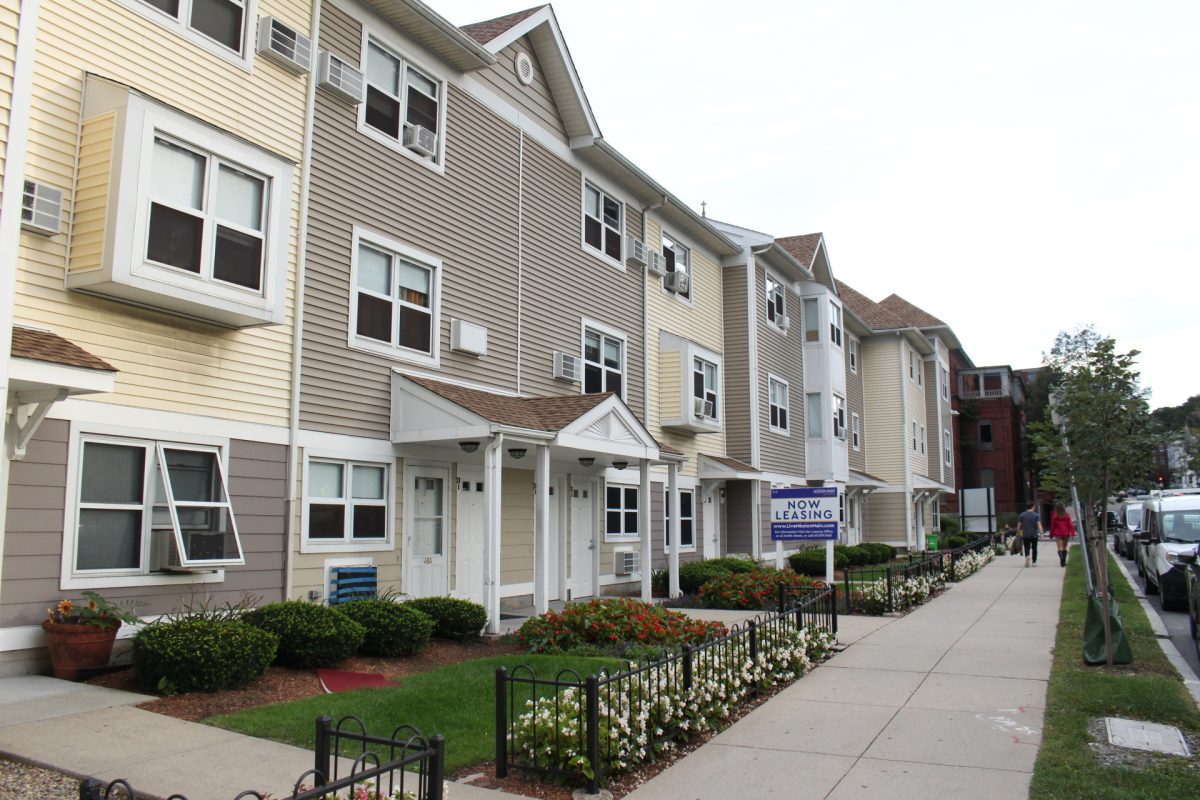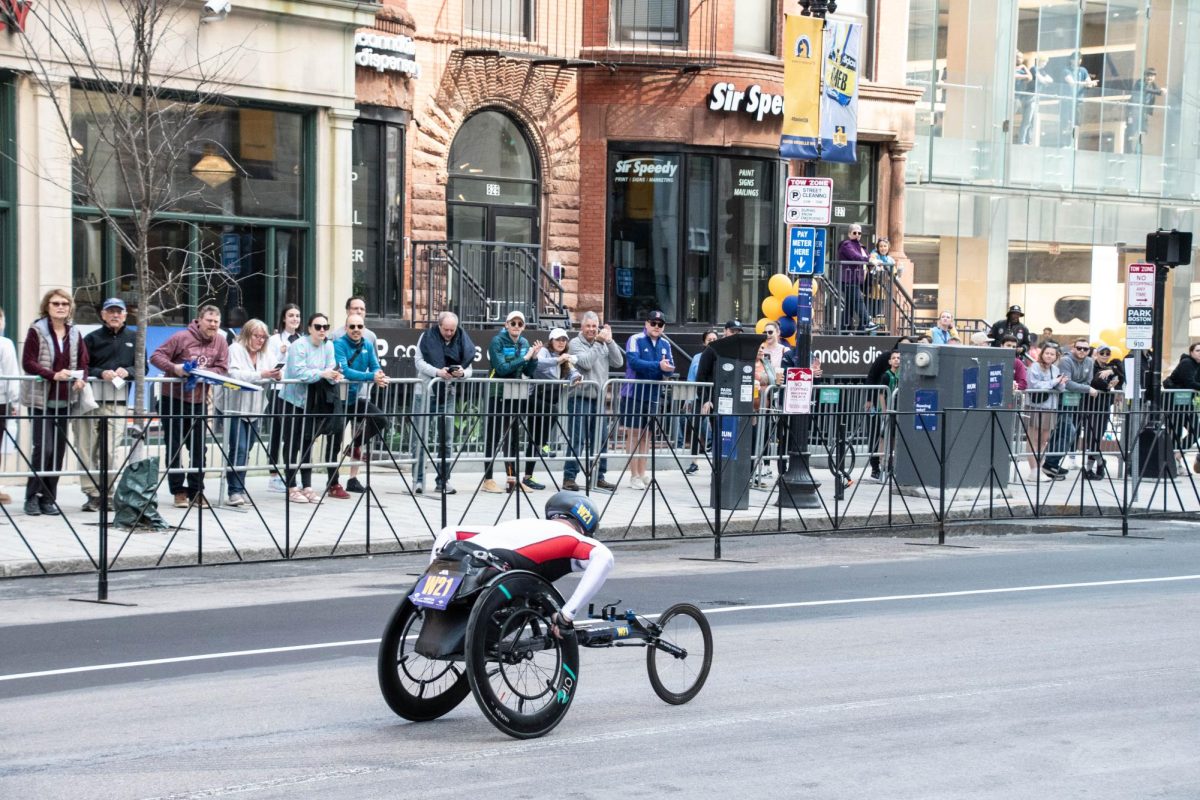By Ellie MacLean, news correspondent
Both federal and state gun control laws are being scrutinized as a result of the Parkland school shooting that left 17 dead Feb. 14. Several states are considering stricter gun control laws, including Massachusetts, the state that currently holds the country’s lowest rate of death by firearm according to the Centers for Disease Control and Prevention.
Massachusetts has about 70 percent fewer gun deaths than the national average, with a firearm death rate of only 3.4 people per 100,000 in 2016 according to data from the Centers for Disease Control and Prevention. This is significantly lower than other states with similar populations, like Arizona, where a permit is not required to purchase a gun and the firearm death rate was 15.2 people per 100,000 in the same year. Though it’s impossible to discern a single cause, data from The Law Center to Prevent Gun Violence does seem to suggest a correlation between stricter gun laws and fewer firearm deaths.
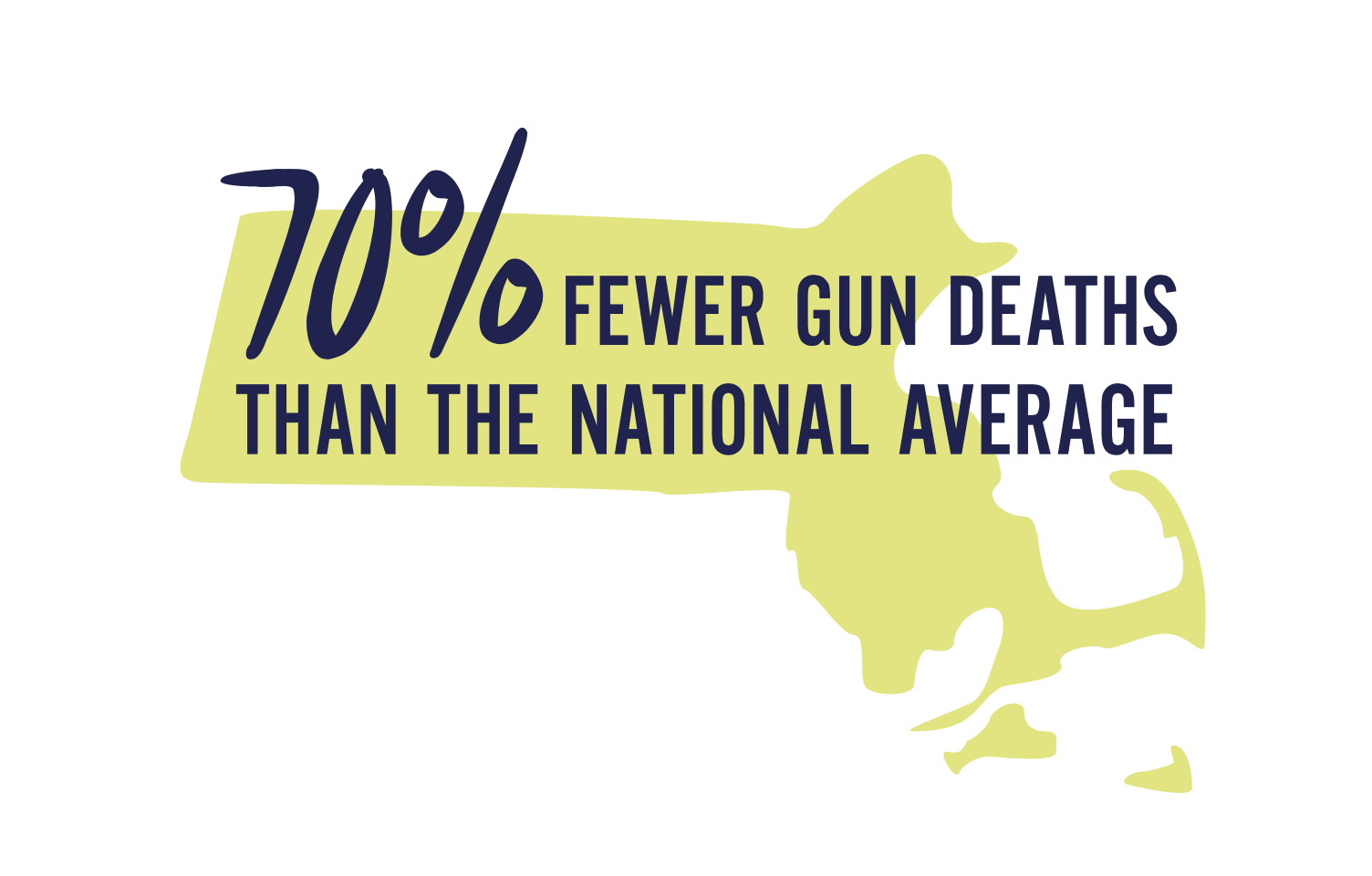
Following the Parkland massacre, Sen. Edward Markey (D-Mass.) introduced a bill on March 14 that would incentivize other states to adopt Massachusetts’ gun laws.
The bill, the Making America Safe and Secure Act, would authorize the Department of Justice to allocate $20 million in grants every year over the next five years to states that implement laws similar to those in Massachusetts.
Still, gun rights advocates adamantly oppose these strict laws. Jim Wallace, the executive director of Gun Owners Action League, the Massachusetts affiliate for the National Rifle Association, said these regulations infringe on Second Amendment rights.
“There is certainly the argument to be made as to why you even need a license to exercise a civil right,” he said.
Several acts and laws play into the effectiveness of Massachusetts gun regulation.
Most commonly known is the state’s ban on assault weapons, which was enacted in 2004 by former Gov. Mitt Romney. However, several other mandates in Chapter 284 of the Massachusetts law maintain its reputation as a strictly regulated state when it comes to guns.
For instance, the state instructs private sellers to verify that buyers have a valid gun license, requires gun dealers to conduct background checks, bans mentally unstable individuals from owning firearms and requires weapons to be locked up when not in use.
In 2017, Massachusetts passed Bill H.4008 and became the first state to ban bump stocks — a device that makes assault weapons fire at faster rates — after they were used in the Oct. 1 mass shooting in Las Vegas. Since then, CBS News has reported that several other states have increased bump stock restrictions, while the federal government is considering banning them entirely.
But many gun policy experts find Massachusetts’s most successful restriction often goes unmentioned in national gun control discussions. One of the state’s more distinct policies lies in An Act Relative to the Reduction of Gun Violence, which allows local law enforcement to deny, suspend or revoke licenses for handguns and long guns. Similar policies have been enacted in five other states — California, Connecticut, Hawaii, Illinois and New Jersey — and the District of Columbia.
“Police chiefs in Massachusetts have the discretion on whether to issue a license, and most other states only use the federal criteria,” said Jack McDevitt, a Northeastern professor of criminology and the former chair of the Massachusetts Committee to Reduce Firearm Violence.
McDevitt said this part of the legislation in particular helps keep guns out of the hands of dangerous people.
“Federal criteria allows people to get guns who have a history of violence, but might not be convicted on a violent offense,” McDevitt said.
Though a person is not forbidden from purchasing a firearm at the federal level, he said, local police have the power to revoke a license application from someone they know is dangerous.
However, McDevitt said 97 percent of Massachusetts gun license applicants are approved, which he said indicates police are not vigorously denying applicants on a whim.
Wallace said this law causes law-abiding citizens to lose their Second Amendment freedoms.
“Restricting someone who’s lawful is nonsensical,” Wallace said of the clause that allows police chiefs to determine suitability. “If you’re going to restrict somebody, restrict a criminal, but not us.”
Though states may independently pass gun laws as they see fit, McDevitt said other states would benefit from sharing the same firearm regulations as Massachusetts.
“If we were able to convince other states around us that they should have a similar licensing structure, I think that would be helpful in tracing more guns and sharing data more widely,” he said.
The ATF releases an annual state-by-state report of firearms traces, which has shown that states with more lax gun laws traffick guns to stricter states. The report indicates that thousands of guns linked to crime were purchased in different states than those the crimes were committed in.
Though Massachusetts is lowest in terms of death rates by guns and one of the highest in terms of restrictions, McDevitt said more could be done. He suggested implementing laws like those in Europe, where death rates by gun are even lower.
“That would mean further identifying which kinds of people shouldn’t have guns,” McDevitt said. “It would mean getting mental health services for people who are mentally ill and it would also mean having programs for young black and Latino males who are the most common victims of gun violence to be able to help them.”


